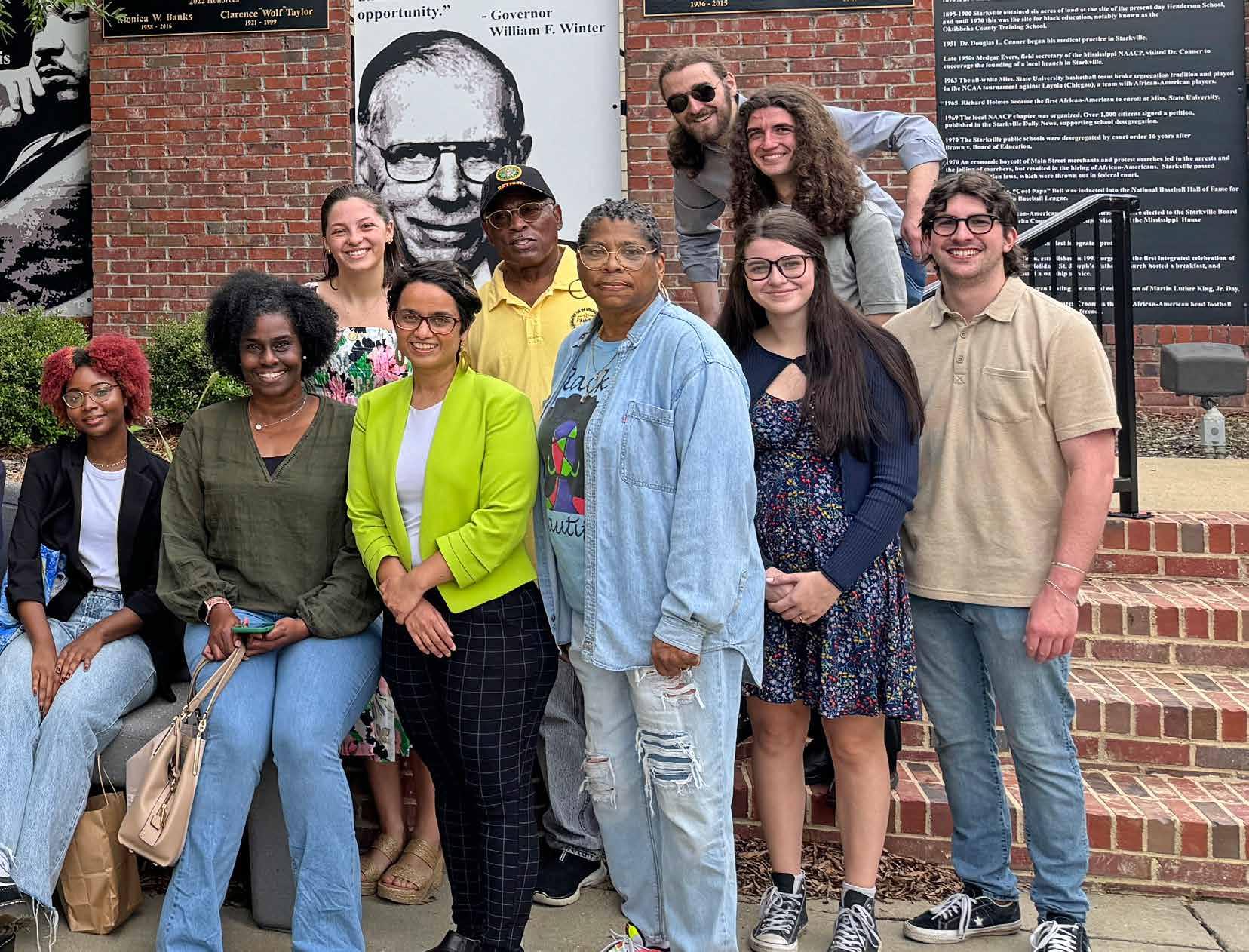
6 minute read
BEYOND THE CLASSROOM, INTO THE COMMUNITY MSU faculty, students preserve voices of the past
By Portia Agypong
“One of the reasons for education is that you want to give back to your community, you want to learn about your community and its presence in the United States, but then you want to work in your community and solve the issues that your people are facing,” said Dhanashree Thorat, an assistant professor in Mississippi State’s Department of English.
A new class created by Thorat, Digital Ethnic Studies, became an MSU community-engaged learning course to take students beyond the classroom into the community for them to better understand their community in the past and present and how to help its future.
Last spring, Thorat’s class developed a digital humanities project to honor the legacy of Dr. Douglas L. Conner, a renowned civil rights activist and one of Starkville’s first Black physicians.
“When I was submitting this course proposal, the context I was working with was the founding of ethnic studies through student activism which led to the creation of African American Studies, Asian American Studies, Latinx Studies and Native American Studies,” said Thorat.
“The community-engaged component was so crucial because we want to honor work that was happening in the 1960s that is still very relevant today,” she continued. “There is a gap between what the community knows and what the students know and we want to try and bridge that gap.”
Drawing on Conner’s autobiography “A Black Physician Story: Bringing Hope in Mississippi,” along with archival papers and scholarly sources, students explored civil and political rights issues like school desegregation, voting, economic boycotts, lawsuits and other topics. A project launch was held at the end of the semester which brought students and community members together to showcase the life and impact of Conner in Starkville.
“I chose Dr. Conner because I had been hearing a lot about him through the Oktibbeha NAACP. They obviously have a connection to him because he was one of the founders of the Oktibbeha NAACP in the 1970s, and they have honored his legacy in everything they do even today,” said Thorat.
“I wanted us to work on a local and Starkville figure because some of the other civil rights leaders are better known,” Thorat said. “People like Malcolm X and Dr. Martin Luther King are folks who are taught in college and high school curriculums, but we don’t often learn about the local people who sometimes made the most impact because of their work in the local community.
“I do feel like our students at MSU should learn about these local history lessons,” she continued. “They should have the opportunity to learn about what has shaped the school, what was going on around the school, and be connected with people outside the school.”
Rheagan Case, a second-year graduate student in MSU’s English Department, took the course and appreciated learning in the community.
“I enjoyed being able to see all of the different Dr. Conner collections in Special Collections, working with the Oktibbeha NAACP, and having a project launch day with people in the Starkville community,” Case said.
“It was enriching to see, hear, and watch the stories of Starkville’s civil rights history concerning Dr. Conner’s life.
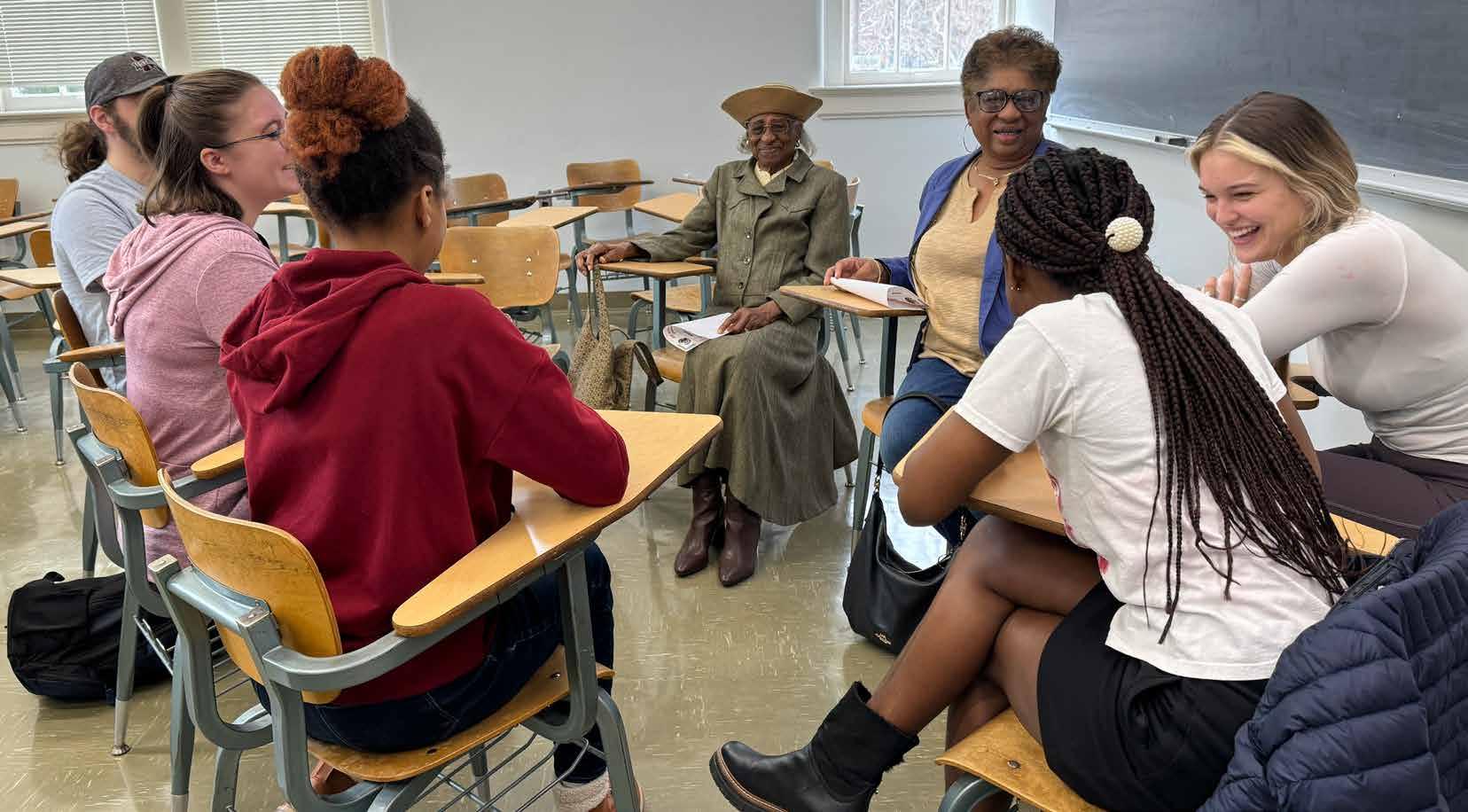
“I learned a great deal about Dr. Conner as a person and his impact he made on Starkville’s community and civil rights in the U.S. in general,” she continued. “I specifically did a good bit of research on Dr. Conner’s adopted son, Richard Holmes, and learning about how Holmes integrated MSU was interesting. I feel as if I have a better sense of what Starkville’s history looks like, especially, in regards to civil rights,” she continued. Conner adopted Holmes after Holmes’s grandmother, who was Conner’s patient, passed away when Holmes was 12.
At the Conner Digital Project launch, community members helped transcribe Conner’s handwritten documents, recorded their memories of him and heard a speech given by his daughter, Divian Conner. There also was a Black history tour of downtown Starkville led by the late Chris Taylor, former Oktibbeha NAACP president. Taylor reviewed the project and commended Thorat and her classes research before he died in August of 2024.
Michelle Garraway, assistant director at MSU’s Center for Community-Engaged Learning said the Conner Digital Project underscores the importance of community-engaged learning.
“This project literally involved students going into Starkville to interview community members and gain perspectives on historical events,” she said. “While they could have done all their research in a library, Dr. Thorat and the students realized that the human element would enrich the project and engage with the community. I believe their actions proved why communityengaged learning is important. Not reaching out to community members would have left a gap in the project results.
“I think the showcase the students held at the end of the semester encapsulated the impact the Conner project had on both the university and the community,” Garraway said. “Members of both groups were able to interact around the material and continue to exchange information. It can’t be overstated how meaningful a local project was for the students to visit sites and engage directly with community,” she continued.
With advanced technological culture today, the internet and digital technologies continue to shape the way humans interact with the world, which Thorat said emphasizes the need to focus on using digital media to preserve records, especially to answer research questions in the field of humanities.
“This is a course in Digital Ethnic Studies, so we are also thinking about the changes that have happened since the 1960s as people have moved online,” Thorat said. “A digital platform is so suited for this project. We can use websites and digital publishing to actually preserve these stories for future generations.”
Case said this community-engaged course opened her mind to a new wave of research.
“Because of this class, I want to become more involved with digital humanities. Having projects online like ours gives more flexibility and freedom to promote rich, important content,” she said. “I also believe it is a great way for students to get their names out there and work with digital publishing. This project has opened my eyes to so many great things, and I am honored to be a part of it.” u
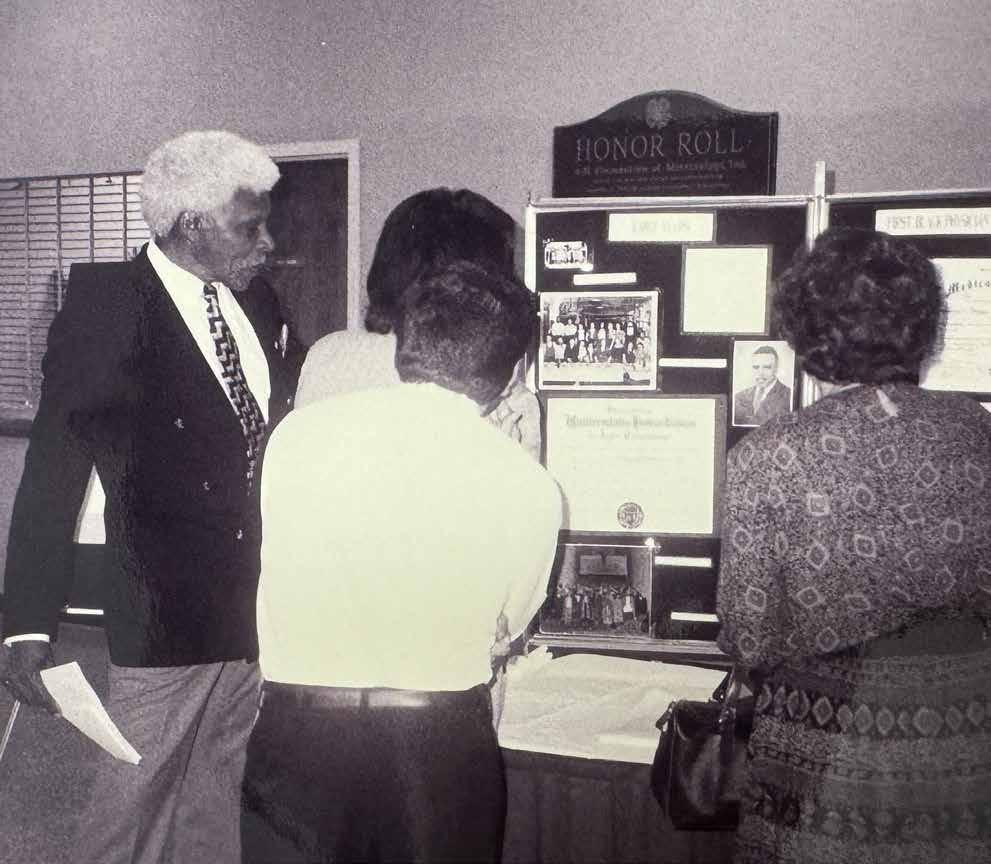
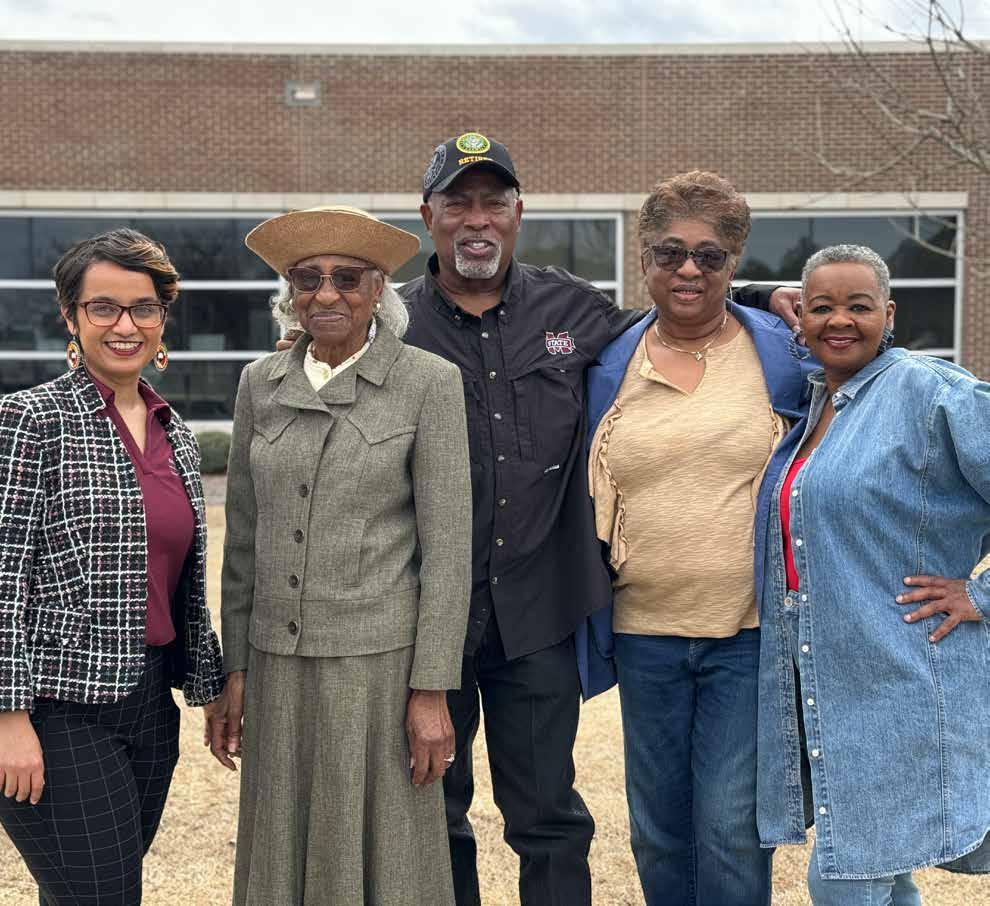
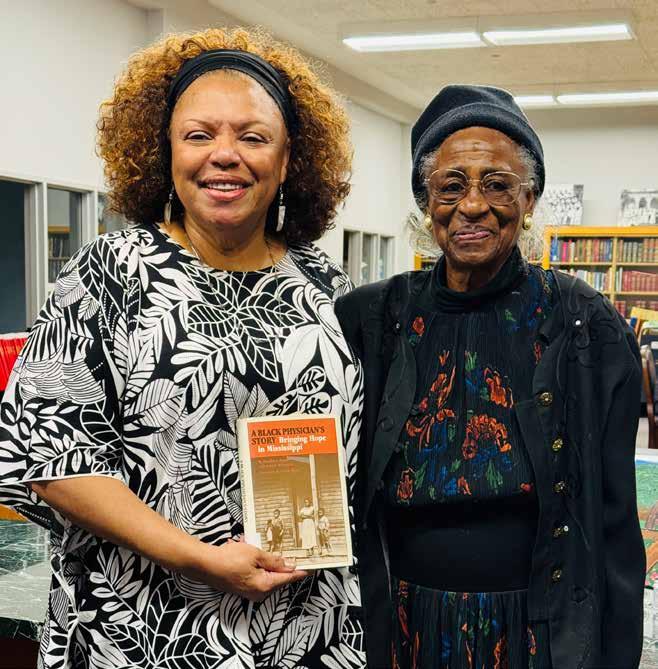
About Dhanashree
THORAT
Dhanashree Thorat, an assistant professor of English, situates her research at the intersection of Asian American studies, postcolonial studies, and digital humanities, and she examines how colonial and racial ideologies shape the technological imagination, specifically in technical infrastructures, platforms and policies. She completed her Ph.D. at the University of Florida in 2017 and was a postdoctoral researcher in digital humanities at the Institute for Digital Research in the Humanities, University of Kansas, from 2017-2019.
About The Author
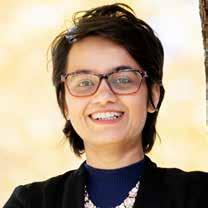

Portia G. Agyapong is from Ghana. She graduated from Kwame Nkrumah University of Science and Technology (KNUST) with a bachelor’s degree in English in November 2021 and is currently pursuing a master’s degree in English at MSU. Working as a graduate teaching assistant for the English department, she is a composition instructor and a consultant at MSU’s Writing Center. Post-graduation, Agyapong hopes to pursue a Ph.D. in English.








